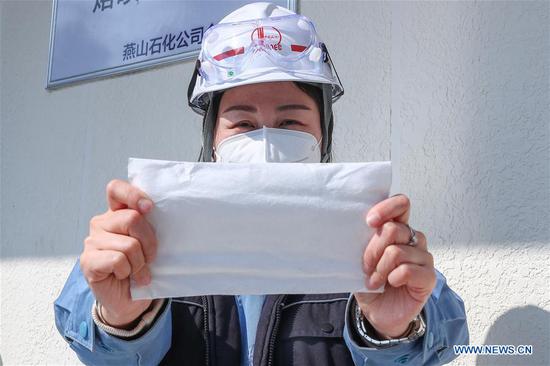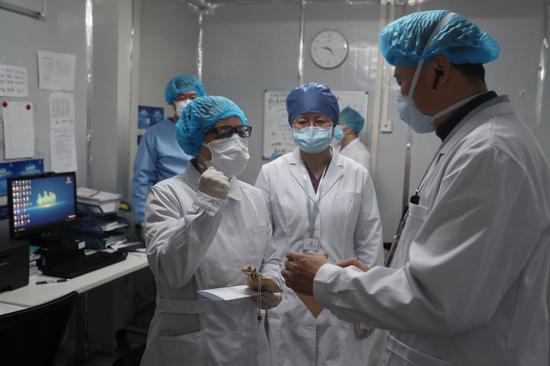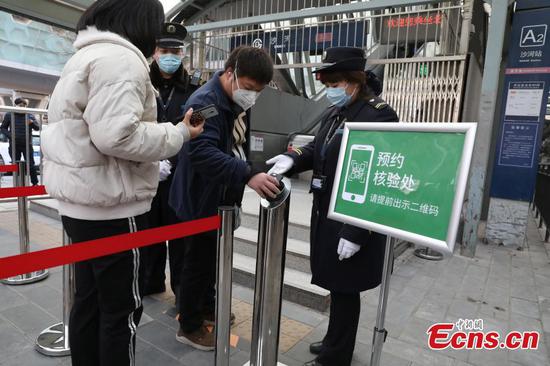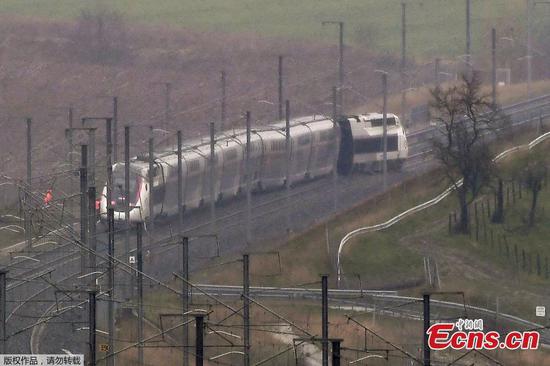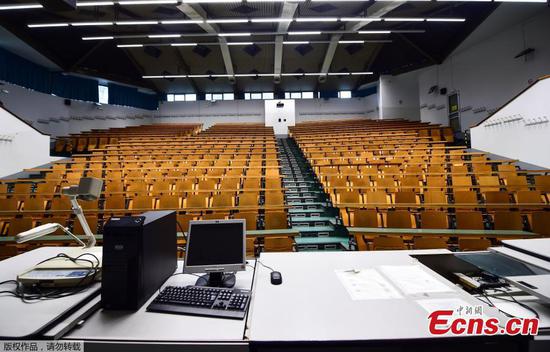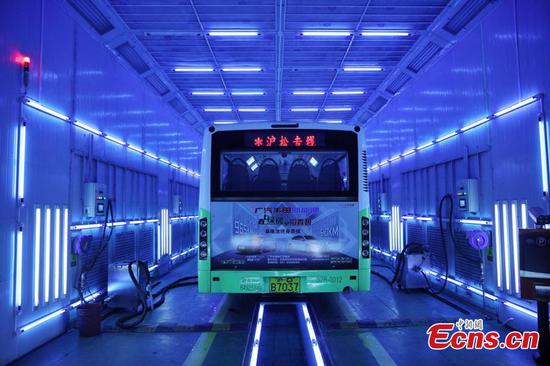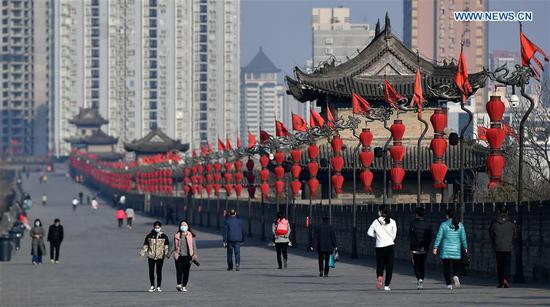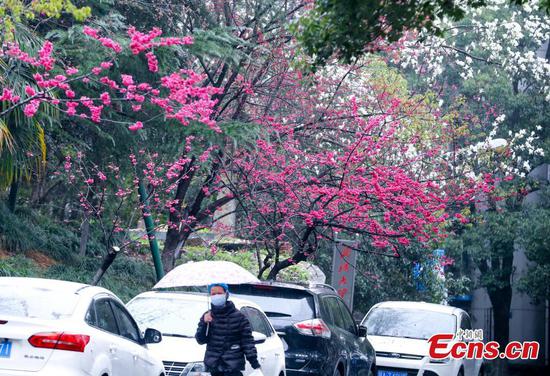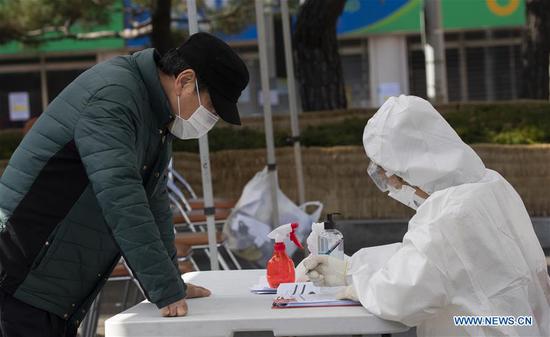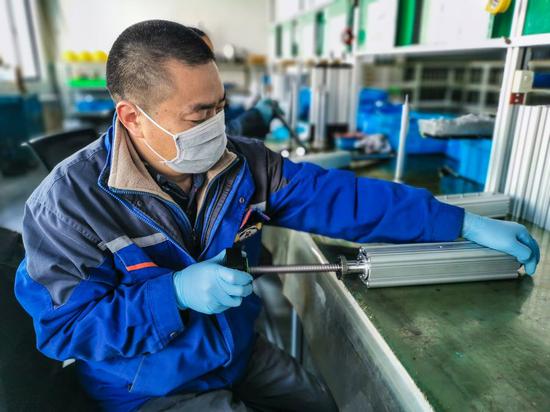
A worker works at a production line of Suzhou Tongjin Precision Industry Joint-stock Co., Ltd. in Suzhou, east China's Jiangsu Province, March 6, 2020. (Xinhua)
Spring is usually a peak hiring season in China. But this year's novel coronavirus outbreak has disrupted the pace of recruitment, especially for college graduates, and stranded a large number of migrant workers in the country's west, resulting in labor shortages in some eastern regions.
In order to mitigate the impact on employment, China has started to take a string of measures to ensure job creation, facilitate the employment of rural migrant workers and college graduates, and solve difficulties for small and household businesses.
MORE SUPPORT FOR MIGRANT WORKERS
There were 290 million rural migrant workers in China in 2019, with 75 million working outside their home provinces. They are among the hardest-hit by the epidemic.
In order to organize migrant workers to resume production in the wake of the prolonged Lunar New Year holiday, authorities across China have arranged chartered vehicles to take workers from their homes directly to the factories.
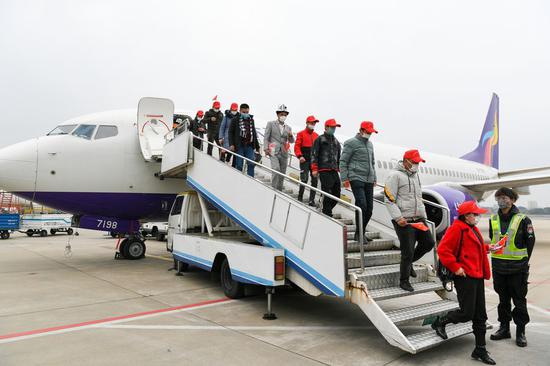
Days ago, a chartered plane carried over 140 migrant workers from the city of Tongren in the southwestern province of Guizhou to the manufacturing city of Kunshan in east China's Jiangsu Province.
The workers, each carrying their health certificates, boarded the chartered aircraft after body temperature measurement. After landing, they were directly picked by buses of Kunshan Q Technology Co., Ltd., a high-end camera module manufacturer, to avoid unnecessary human contact.
Wang Jianqiang, general manager of the company, said the company has received 70 percent more orders for March than a year earlier. However, he was not sure whether the company could deliver products on time because of labor shortages amid the epidemic.
After learning the urgent need of the enterprise, local authorities decided to seek more workers to fill in the vacancies. "We worked with related departments in Tongren to dispatch more than 700 workers to Kunshan, half of whom are poverty-stricken individuals, with free flight and railway services," said Liu Ping, a local official in Kunshan.
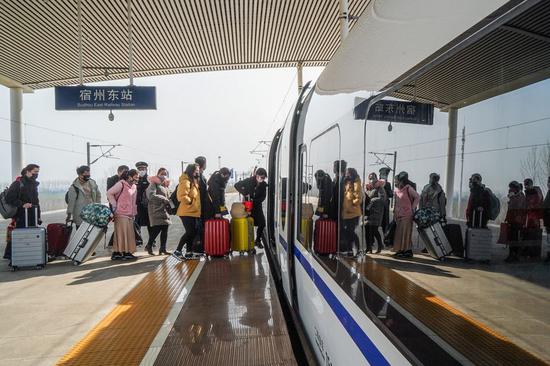
Liu added that the measure can both help workers acquire jobs and ease labor shortages in Kunshan. "More importantly, it can develop a talent pool for the future industrial shift from the well-developed east to the less-developed west."
Authorities in many regions are also helping rural workers secure jobs in their hometowns.
In the city of Huai'an in northern Jiangsu, the local government has announced a slew of measures including the introduction of jobs and employment subsidies to encourage migrants to work in their hometown.
After a series of online employment procedures, Zhou Dongxia scored a job at a local hat manufacturing factory with a monthly salary of 4,000 yuan (about 577 U.S. dollars).
Zhou worked in a cable factory in Shanghai last year but was stranded at home after the Spring Festival. As she was worrying about her family income, the hat factory began to recruit more workers, especially returned migrants like her.
"Now I can work and look after my family at the same time," Zhou said.









